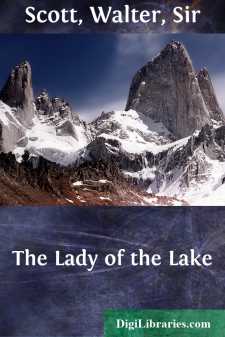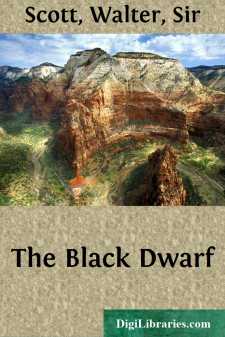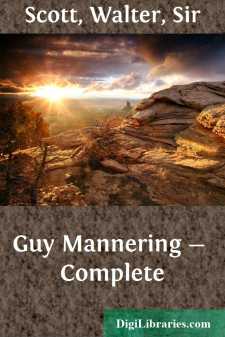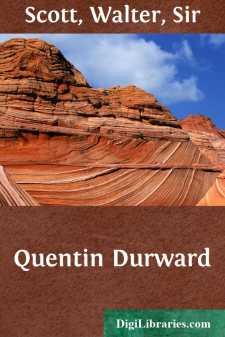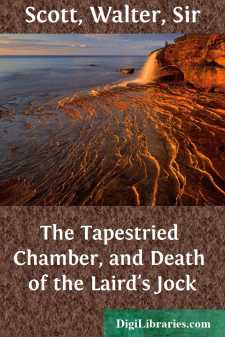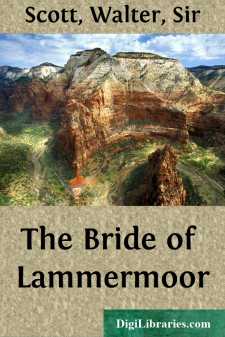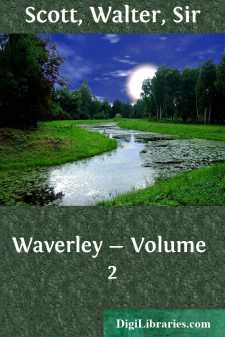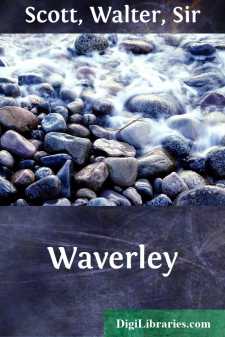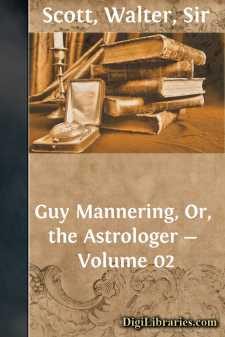Categories
- Antiques & Collectibles 13
- Architecture 36
- Art 48
- Bibles 22
- Biography & Autobiography 813
- Body, Mind & Spirit 142
- Business & Economics 28
- Children's Books 12
- Children's Fiction 9
- Computers 4
- Cooking 94
- Crafts & Hobbies 4
- Drama 346
- Education 46
- Family & Relationships 57
- Fiction 11828
- Games 19
- Gardening 17
- Health & Fitness 34
- History 1377
- House & Home 1
- Humor 147
- Juvenile Fiction 1873
- Juvenile Nonfiction 202
- Language Arts & Disciplines 88
- Law 16
- Literary Collections 686
- Literary Criticism 179
- Mathematics 13
- Medical 41
- Music 40
- Nature 179
- Non-Classifiable 1768
- Performing Arts 7
- Periodicals 1453
- Philosophy 64
- Photography 2
- Poetry 896
- Political Science 203
- Psychology 42
- Reference 154
- Religion 513
- Science 126
- Self-Help 84
- Social Science 81
- Sports & Recreation 34
- Study Aids 3
- Technology & Engineering 59
- Transportation 23
- Travel 463
- True Crime 29
Walter Scott
Sir Walter Scott (1771-1832) was a Scottish novelist, poet, historian, and biographer who is considered one of the most influential figures in Scottish literature. He is renowned for his historical novels such as "Ivanhoe," "Rob Roy," and "Waverley," which romanticized Scottish history and folklore. Scott's works played a significant role in the development of the historical novel genre and had a lasting impact on literature and cultural identity in Scotland.
Author's Books:
Sort by:
by:
Walter Scott
Preface When I first saw Mr. Osgood's beautiful illustrated edition of The Lady of the Lake, I asked him to let me use some of the cuts in a cheaper annotated edition for school and household use; and the present volume is the result. The text of the poem has given me unexpected trouble. When I edited some of Gray's poems several years ago, I found that they had not been correctly printed for...
more...
by:
Walter Scott
CHAPTER FIRST And hurry, hurry, off they rode,As fast as fast might be;Hurra, hurra, the dead can ride,Dost fear to ride with me?Burger. There is one advantage in an accumulation of evils, differing in cause and character, that the distraction which they afford by their contradictory operation prevents the patient from being overwhelmed under either. I was deeply grieved at my separation from Miss...
more...
by:
Walter Scott
INTRODUCTION. As I may, without vanity, presume that the name and official description prefixed to this Proem will secure it, from the sedate and reflecting part of mankind, to whom only I would be understood to address myself, such attention as is due to the sedulous instructor of youth, and the careful performer of my Sabbath duties, I will forbear to hold up a candle to the daylight, or to point out...
more...
by:
Walter Scott
The Novel or Romance of Waverley made its way to the public slowly, of course, at first, but afterwards with such accumulating popularity as to encourage the Author to a second attempt. He looked about for a name and a subject; and the manner in which the novels were composed cannot be better illustrated than by reciting the simple narrative on which Guy Mannering was originally founded; but to which,...
more...
by:
Walter Scott
CHAPTER I: THE CONTRAST Look here upon this picture, and on this,The counterfeit presentment of two brothers. HAMLET The latter part of the fifteenth century prepared a train of future events that ended by raising France to that state of formidable power which has ever since been from time to time the principal object of jealousy to the other European nations. Before that period she had to struggle for...
more...
by:
Walter Scott
THE TAPESTRIED CHAMBER; OR, THE LADY IN THE SACQUE. The following narrative is given from the pen, so far as memory permits, in the same character in which it was presented to the author's ear; nor has he claim to further praise, or to be more deeply censured, than in proportion to the good or bad judgment which he has employed in selecting his materials, as he has studiously avoided any attempt...
more...
by:
Walter Scott
INTRODUCTION TO THE BRIDE OF LAMMERMOOR THE Author, on a former occasion, declined giving the real source from which he drew the tragic subject of this history, because, though occurring at a distant period, it might possibly be unpleasing to the feelings of the descendants of the parties. But as he finds an account of the circumstances given in the Notes to Law's Memorials, by his ingenious...
more...
by:
Walter Scott
AN INCIDENT The dinner hour of Scotland Sixty Years Since was two o'clock. It was therefore about four o'clock of a delightful autumn afternoon that Mr. Gilfillan commenced his march, in hopes, although Stirling was eighteen miles distant, he might be able, by becoming a borrower of the night for an hour or two, to reach it that evening. He therefore put forth his strength, and marched...
more...
by:
Walter Scott
GENERAL PREFACE TO THE WAVERLEY NOVELS And must I ravel outMy weaved-up follies? Richard II, Act IV. Having undertaken to give an Introductory Account of the compositions which are here offered to the public, with Notes and Illustrations, the Author, under whose name they are now for the first time collected, feels that he has the delicate task of speaking...
more...
by:
Walter Scott
A man may see how this world goes with no eyes. Look with thine ears. See how yon justice rails upon yon simple thief. Hark in thine ear: Change places; and, handy-dandy, which is the justice, which is the thief? —King Lear. Among those who took the most lively interest in endeavouring to discover the person by whom young Charles Hazlewood had been waylaid and wounded was Gilbert Glossin, Esquire,...
more...


